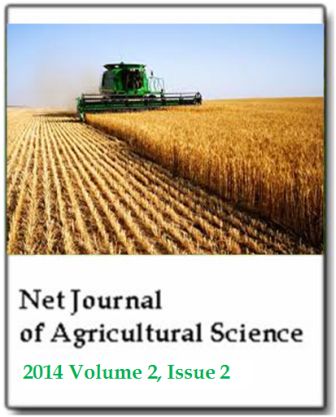Analysing socio-economic factors influencing the failure of land reform agricultural projects in Ngaka Modiri Molema District of North-West Province, South Africa
Mapholi T. H., Antwi M., Ravhuhali K. E. and Lefophane H. M.Net Journal of Agricultural Science
Published: April 8 2014
Volume 2, Issue 2
Pages 58-67
Abstract
This study examined socio-economic factors influencing failure of land reform agricultural projects in Ngaka Modiri Molema District in the North West Province. The study utilized data from a randomly selected 19 land reform agricultural projects collected through face-to-face interview using a structured questionnaire containing both open-ended and close-ended questions. The data was captured using Statistical Package for Social Sciences (SPSS). Only Microsoft Excel was applied in developing tables, charts and graphs. Incomplete questionnaires were discarded. The study analysis conducted showed that the majority of projects beneficiaries are receiving government support in the Land Reform Agricultural Development (LRAD) project in the Ngaka Modiri Molema District of the Northwest Province. The Department of Agriculture Forestry and Fisheries and Department of Rural Development and Land Reform support to the land reform projects beneficiaries is more adequate and provided in high number of land reform projects. Many project beneficiaries find more to access extension services (advice to farmers), training, credit, grants and markets. Through thorough observation and direct communication with farmers, most of factors affecting land reform failure are as follows: lack of financial support, lack of highly skilled labour and extension officers, poor management. Other contributions to the failure is age group as there are more adults compared to youth and most of the projects beneficiaries are illiterate and few are literate. The study therefore recommended that youth should be encouraged to participate on the agricultural projects. There should be continuous monitoring project implementation to ensure sustainability and growth should be encouraged. The Department of Land Affairs should release the money (BOG) they withheld to the few projects (15.8%) owner so that they can fully utilize the land. Furthermore, skilled people should be encouraged as well to participate in the projects. Short term loans should be made available to emerging farmers, since they often have no collateral to secure loans.
Keywords: Land reform, socio-economic factors, beneficiaries, analysis, restitution.
Full Text PDF
